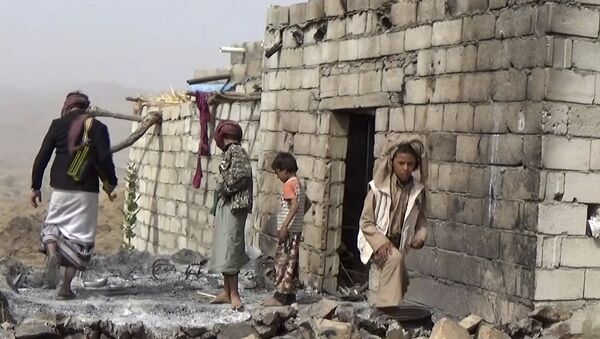The initial operation on January 29 left more than two dozen civilians, among them children, dead. Yemen, of course, is already enduring a humanitarian crisis, during which at least 10,000 have died, per the UN, and millions more will face famine this year. The Saudi-led coalition’s entanglement with Houthis in Yemen has played no small part in the ongoing, real-time tragedy.
For instance, in February, 10 mourners – nine women and one child – attending a funeral were gunned down by Saudi planes likely armed with US-made bombs, Sputnik reported. While the coalition said it would be "investigating the reports," the funeral strike wasn’t a novel event. In October 2016, Saudi warplanes initiated an airstrike on a funeral. A UN estimate said 140 were killed as a result, while at least 500 more were injured.
One reason the SEALs might have called the second mission off is that the first one caused the military to lose “a lot” in the operation. "We lost a valued operator, we had people wounded, we caused civilian casualties, lost an expensive aircraft," General Joseph Votel, chief of US Central Command, told the Senate Armed Forces Committee. The “expensive” aircraft Votel referred to was a $90 million Osprey tiltrotor chopper, which the SEALs crashed and destroyed to prevent the enemy from getting ahold of it or its technologies. Perhaps most disappointing was that AQAP leader Qassim al Rimi, who was believed to be one of the targets of the January 29 operation, emerged from the bloody incident alive.
Another possible reason the SEALs’ mission was aborted is that the US conducted 30 – yes, 30 – airstrikes over three Yemeni provinces over two days in March, the Pentagon said. The US has not officially declared war on Al Qaeda forces in Yemen, but 30 strikes seems to constitute an act of war. In order to go to war, the US Congress is supposed to authorize funds and the use of force, according to Article One, Section Eight of the US constitution, which says "Congress," not the executive branch, "shall have the power to … declare War."
Instead of fighting AQAP in Yemen, SEAL Team 6 might be joining US-South Korea war games to practice eliminating North Korea’s ability to launch a nuclear attack, the Independent reports. The war games, both sides insist, are defensive.

